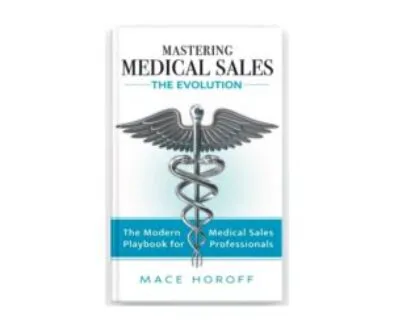Scenes from a Blown Presentation Opportunity
A few weeks back, I got a call from a medical sales representative named Roberto. He just completed a sales call with a hospital CEO that did not go well. He found my medical sales training site and wanted to know if I could help him undo the damage.
The purpose of Roberto’s appointment was to explain to the CEO how Roberto and his company could help the hospital to align with the government’s Value Based Purchasing initiative. I could hear the agony in his voice as he tried to explain what happened.
“Right after I shook his hand, the whole presentation went to hell. I couldn’t organize my thoughts, and the CEO kept saying, ‘I don’t understand how you can help us.’ I tried to explain, but the more questions he asked, the more stressed I got and I just couldn’t think. Finally, the CEO said, ‘I was under the impression that you had the experience to help us. It doesn’t sound that way to me. If you can’t get to the point and tell me in the next 30 seconds how we would benefit, I need to get back to work.’ I tried to explain and finally realized I was just making things worse, so I said I would call him when he had more time. How can I fix this?”
I asked, “Roberto, what did you do to prepare for the presentation?” He responded that he read some information on the company intranet about helping customers with Value Based Purchasing.
I followed with, “So, what did you do to organize that information? Did you create an outline? Did you practice the key talking points? Did you create questions to validate the CEO’s perceived needs?”
Silence.
Roberto admitted that his preparation for the meeting was nothing more than reading over the information on the company website. He said he felt comfortable enough to present. Thinking you’re ready to go live without testing your ability is a huge mistake, and one that medical sales representatives make every day.
There’s a big difference between familiarity and competency when it comes to medical sales. Familiarity means you recognize something and have a level of understanding. Competency, from a sales perspective, means that you have the ability to identify needs and position your product to address those needs in a confident and articulate manner.
Often, the first time medical sales reps test their competency is when they’re with a customer. They know the message they want to convey, but it is not always communicated clearly.
I asked Roberto to tell me exactly what he tried to tell the CEO. His messaging was fragmented, erratic, and suggested that he was anything but confident.
I frequently present corporate training workshops to hone selling skills for medical sales teams after they go through product training. I will ask the question, “How many of you don’t think you’re ready to engage a healthcare provider in a conversation about the product or service for which you just received training?” Rarely will a hand go up, which means that the vast majority of sales reps think they’re ready to face customers. But when I put them in a structured role play situation to test their ability to perform, it’s a huge wake-up call. Few can articulate what they learned, despite having an understanding of the concepts.
Sales is like almost any other performance activity. It requires preparation and practice.
The CEO isn’t willing to grant Roberto another appointment, and if you think about it, why should he. Roberto wasted his time once. Second chances are rare when you sell to busy professionals who have little patience for incompetency.
Treat every future encounter with a healthcare professional as if it will be the only opportunity you will ever have to discuss a given product or situation. That’s not just dramatic language; it’s often the truth.



